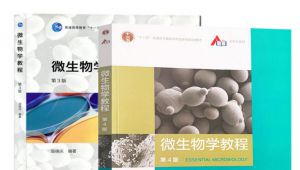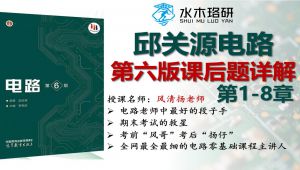- 1.00 导论(1)
- 2.00 导论(2)
- 3.00 导论(3)
- 4.01 商品(1)
- 5.01 商品(2)
- 6.01 商品(3)
- 7.01 商品(4)
- 8.01 商品(5)
- 9.01 商品(6)
- 10.01 商品(7)
- 11.02 货币(1)
- 12.02 货币(2)
- 13.02 货币(3)
- 14.03 价值规律(1)
- 15.03 价值规律(2)
- 16.03 价值规律(3)
- 17.04 资本与剩余价值(1)
- 18.04 资本与剩余价值(2)
- 19.04 资本与剩余价值(3)
- 20.04 资本与剩余价值(4)
- 21.04 资本与剩余价值(5)
- 22.04 资本与剩余价值(6)
- 23.04 资本与剩余价值(7)
- 24.04 资本与剩余价值(8)
- 25.04 资本与剩余价值(9)
- 26.05 资本的积累(1)
- 27.05 资本的积累(2)
- 28.05 资本的积累(3)
- 29.05 资本的积累(4)
- 30.05 资本的积累(5)
- 31.06 资本的循环与周转(1)
- 32.06 资本的循环与周转(2)
- 33.06 资本的循环与周转(3)
- 34.07 社会总资本的再生产及其周期性(1)
- 35.07 社会总资本的再生产及其周期性(2)
- 36.07 社会总资本的再生产及其周期性(3)
- 37.07 社会总资本的再生产及其周期性(4)
- 38.08 利润、平均利润和生产价格(2)
- 39.08 利润、平均利润和生产价格(3)
- 40.09 商业资本和商业利润
- 41.10 借贷资本与利息(1)
- 42.10 借贷资本与利息(2)
- 43.10 借贷资本与利息(3)
- 44.11 资本主义地租(1)
- 45.11 资本主义地租(2)
- 46.11 资本主义地租(3)
- 47.12 垄断资本主义的形成与发展(1)
- 48.12 垄断资本主义的形成与发展(2)
- 49.13 信用与虚拟资本(1)
- 50.13 信用与虚拟资本(2)
- 51.13 信用与虚拟资本(3)
- 52.14 资本的国际化与经济的全球化(1)
- 53.14 资本的国际化与经济的全球化(2)
- 54.14 资本的国际化与经济的全球化(3)
- 55.【社会主义部分】01 社会主义从空想到科学的发展
- 56.02 社会主义从传统到现代
- 57.03 社会主义初级阶级的基本经济制度(1)
- 58.03 社会主义初级阶级的基本经济制度(2)
- 59.03 社会主义初级阶级的基本经济制度(3)
- 60.04 建立现代企业制度(1)
- 61.04 建立现代企业制度(2)
- 62.04 建立现代企业制度(3)
- 63.05 中国社会主义市场经济的建立
- 64.06 工业化与现代化
- 65.07 我国经济的对外开放与经济的全球化(1)
- 66.07 我国经济的对外开放与经济的全球化(2)
- 67.08 社会主义政府的职能
- 创作不易 感谢三连
《政治经济学》是一门经济学、工商管理和国际经济与贸易、人力资源管理、会计学等专业的基础性课程。课程分资本主义部分和社会主义部分,计划讲授30学时。前者包括1-6章,阐述劳动价值论、剩余价值论、资本积累、资本循环、剩余价值的形式、垄断资本主义等内容;后者包括7-14章,主要分析社会主义经济制度、市场经济体制、市场机制与市场体系、企业理论、交换、分配和消费,经济发展方式、宏观经济调控、经济全球化和国际关系等。通过本课程的学习,让学生了解和掌握政治经济学的基本原理以及相关的经济知识,为学习经济类其他课程和知识打下一个良好的基础。
政治经济学主要研究资本主义制度条件下的生产、交换和相应的产品分配的科学,是马克思主义经济学的基础理论课,是加快构建中国特色哲学社会科学学科体系、学术体系、话语体系的重要组成部分。通过政治经济学的学习,学生能够理解和基本掌握马克思主义经济学基本原理,对马克思主义科学性和我国的指导地位有一个深刻的认识、,能够坚定理想信念、增强践行社会主义核心价值观的自觉性,加快形成以爱党、爱国、爱社会主义、爱人民、爱集体的核心的世界观。在教学中,坚持“以学生为中心”的人才培养理念,将教学和科研研究结合起来,把学生的价值塑造、能力培养、知识传授融为一体,培养学生的理论联系实际能力、批判性思维能力、创造能力等。 *课程简介 (Description) Political economy mainly studies the science of production, exchange and correspondingproduct distribution under the condition of capitalist system. It is the basic theoretical course of Marxist economics and an important part of accelerating the construction of the discipline system, academicsystem and discourse system of philosophy and social sciences with Chinese characteristics. Through the study of political economy, students can understand and basically master the basicprinciples of Marxist economics, have a profound understanding of the scientific nature of Marxismand the guiding position of Our country, can firm up ideals and beliefs, and enhance the consciousness of practicing socialist core values. We will accelerate the formation of a worldviewcentered on loving the Party, patriotism, socialism, the people and the collective. In teaching, we adhere to the "student-centered" talent training concept, combine teachingwithscientific research, and integrate students' value shaping, ability cultivation and knowledgeimparting, so as to cultivate students' ability of linking theory with practice, critical thinkingandcreativity.
课程目录
1.00 导论(1)
2.00 导论(2)
3.00 导论(3)
4.01 商品(1)
5.01 商品(2)
6.01 商品(3)
7.01 商品(4)
8.01 商品(5)
9.01 商品(6)
10.01 商品(7)
11.02 货币(1)
12.02 货币(2)
13.02 货币(3)
14.03 价值规律(1)
15.03 价值规律(2)
16.03 价值规律(3)
17.04 资本与剩余价值(1)
18.04 资本与剩余价值(2)
19.04 资本与剩余价值(3)
20.04 资本与剩余价值(4)
21.04 资本与剩余价值(5)
22.04 资本与剩余价值(6)
23.04 资本与剩余价值(7)
24.04 资本与剩余价值(8)
25.04 资本与剩余价值(9)
26.05 资本的积累(1)
27.05 资本的积累(2)
28.05 资本的积累(3)
29.05 资本的积累(4)
30.05 资本的积累(5)
31.06 资本的循环与周转(1)
32.06 资本的循环与周转(2)
33.06 资本的循环与周转(3)
34.07 社会总资本的再生产及其周期性(1)
35.07 社会总资本的再生产及其周期性(2)
36.07 社会总资本的再生产及其周期性(3)
37.07 社会总资本的再生产及其周期性(4)
38.08 利润、平均利润和生产价格(2)
39.08 利润、平均利润和生产价格(3)
40.09 商业资本和商业利润
41.10 借贷资本与利息(1)
42.10 借贷资本与利息(2)
43.10 借贷资本与利息(3)
44.11 资本主义地租(1)
45.11 资本主义地租(2)
46.11 资本主义地租(3)
47.12 垄断资本主义的形成与发展(1)
48.12 垄断资本主义的形成与发展(2)
49.13 信用与虚拟资本(1)
50.13 信用与虚拟资本(2)
51.13 信用与虚拟资本(3)
52.14 资本的国际化与经济的全球化(1)
53.14 资本的国际化与经济的全球化(2)
54.14 资本的国际化与经济的全球化(3)
55.【社会主义部分】01 社会主义从空想到科学的发展
56.02 社会主义从传统到现代
57.03 社会主义初级阶级的基本经济制度(1)
58.03 社会主义初级阶级的基本经济制度(2)
59.03 社会主义初级阶级的基本经济制度(3)
60.04 建立现代企业制度(1)
61.04 建立现代企业制度(2)
62.04 建立现代企业制度(3)
63.05 中国社会主义市场经济的建立
64.06 工业化与现代化
65.07 我国经济的对外开放与经济的全球化(1)
66.07 我国经济的对外开放与经济的全球化(2)
67.08 社会主义政府的职能
创作不易 感谢三连








